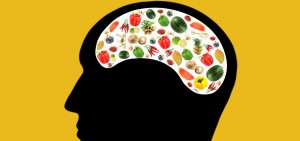 Have you heard of food addiction? It’s a topic that comes up in the news from time to time, with some people strongly supporting the concept that we can be addicted to food, and others believing that food cannot have the same attachment or need as a drug like cocaine.
Have you heard of food addiction? It’s a topic that comes up in the news from time to time, with some people strongly supporting the concept that we can be addicted to food, and others believing that food cannot have the same attachment or need as a drug like cocaine.
Is there such thing as food addiction?
The idea that a person can be addicted to food has accumulated significant support from science. Studies in both animals and humans have shown that, for some people, the same reward and pleasure centers of the brain that are triggered by addictive drugs like cocaine and heroin are also activated by food, especially foods high in sugar, fat, or salt. A 2012 study found that regularly consuming a diet full of high-fat, rich foods can cause chemical reactions in the brain in a similar way to these drugs, ultimately leading to depression as the ‘come-downs’ take their toll. While we have been eating sugars and fats as part of our diet throughout history, modern processing is now creating food with concentrated levels of sugars, unhealthy fats and refined flour, and void of healthy nutrients and fiber. Experts believe that eating large amounts of these processed foods may be changing the way the brain is wired. When we eat these processed foods, our brains react as would be expected in a drug addict and we experience rapid spikes and drops in blood sugar, which stimulates cravings. And of course, all these extra calories add to our waistlines.
Since growing research is proving that food addiction – or something similar, even if we don’t use the word ‘addiction’ – is a significant challenge for those facing it, what can be done about it? Can food addiction be resolved?
Perhaps. A small study has recently found that bariatric surgery, such as Lap-Band, gastric sleeve or gastric bypass, can resolve food addiction, and lead to improvement in several food behaviors associated with extreme obesity. Food addiction was identified in 14 of 44 patients in the study (32%) before surgery. After surgery, 13 of the 14 patients (93%) were reported to be in remission of food addiction. Surgery was found to decrease food cravings in both groups, but the decrease was greater in patients addicted to food. Not surprisingly, the addicted patients craved foods more frequently before, but not after surgery. Interestingly, surgery decreased cravings for all types of foods but cravings for starchy foods were still more frequent in in the food addicted group.
The findings highlight how weight loss may induce remission of food addiction, even while people are still obese. Obesity itself may not cause food addiction, according to the study authors, but rather food addiction may be a contributing–but modifiable–risk factor for obesity.
“I believe this article addresses a very troubling problem which we fight every day”, said Texas bariatric surgeon, Adam B. Smith DO, FACOS, FASMBS. “Whether surgery cures food addiction I would argue possibly not, but is surgery the most effective treatment tool for food addiction? I would argue yes. We must remember that we are treating a whole person, not just a surgical illness. We must ensure that our patients continue to access and utilize support groups, counseling, and other healthcare professionals as needed, for their best possible outcomes.”
You can read more about food addiction and obesity here.






Nutrition & Lifestyle, Weight Loss Studies & Clinical